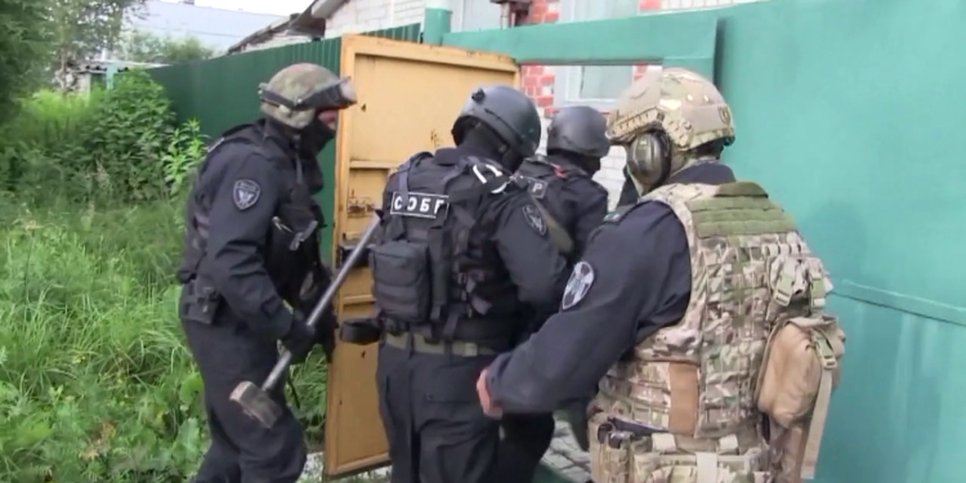Photo: raid on believers in the Nizhny Novgorod region (July 2019)
Photo: raid on believers in the Nizhny Novgorod region (July 2019)
On July 31, 2019, the FSB Directorate for the Republic of Karelia conducted at least 15 searches in the cities of Petrozavodsk and Kondopoga in the homes and workplaces of citizens believed to be Jehovah's Witnesses. Men and women were detained for interrogation, some overnight. Several people are still not in touch, presumably they are detained.
A criminal case was opened on the grounds that in 2017 the Supreme Court of Russia banned the activities of all Jehovah's Witnesses organizations in Russia at once. Law enforcement agencies interpret this decision as a total ban on the worship of Jehovah ("Jehovah" is the name of God in the Bible).
In most cases, believers were caught by law enforcement officers at home. For some, the seizure groups came to their workplaces. Spouses Maksim and Maria Amosov were detained on the street, while the woman's coat was torn. The search in the apartment of Mikhail Gordeev, where he lives with his wife, minor daughters and mother-in-law, was carried out until the evening. During the searches, phones, tablets, computers and the like were seized from citizens.
Judging by the investigators' questions, a criminal case was opened against 44-year-old Alexei Smelov from Kondopoga and 42-year-old Maxim Amosov from Petrozavodsk. Both men have families who are struggling with unfair criminal prosecution.
Exactly 3 years ago, on July 28, 2016, the Karelian special services staged an act of intimidation for believers, breaking into the worship buildings of Jehovah's Witnesses in Petrozavodsk and Kostomuksha with machine guns. Believers were roughly knocked to the floor, pressed with their knees, kicked.
Law enforcement officers inappropriately call the religion of citizens participation in the activities of an extremist organization. Prominent public figures of Russia, the Human Rights Council under the President of the Russian Federation, the President of the Russian Federation, as well as international organizations - the European Union External Action Service, observers of the Parliamentary Assembly of the Council of Europe, the Office of the UN High Commissioner for Human Rights - drew attention to this problem. Jehovah's Witnesses have nothing to do with extremism and insist on their complete innocence. The Russian government has repeatedly stated that the decisions of the Russian courts on the liquidation and prohibition of organizations of Jehovah's Witnesses "do not assess the doctrine of Jehovah's Witnesses, do not contain a restriction or prohibition to practice the above teachings individually."

